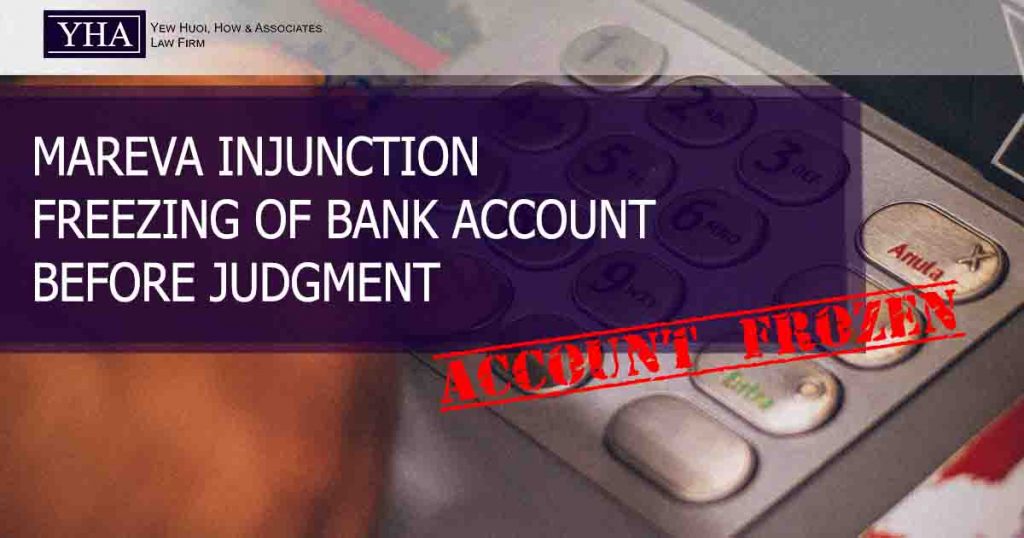Q: One of my staffs who were entrusted with the company’s money absconded with our money. She has a bank account where the money misappropriated was placed in. There is a grave danger he/she will transfer out the money as soon as he/she knows legal action is taken against him/her. What can we do?
- The company can take out a Mareva injunction to freeze his/her bank account pursuant to Para 6 Schedule of the Courts of Judicature Act 1964 (“CJA 1964”) reading together with Order 29 of the Rules of Court 2012 (“ROC 2012”).
Q: What is the criteria to get a Mareva injunction?
3 main criteria the court will consider when granting a Mareva injunction as follows:
– The plaintiff (i.e. the company) has a good arguable case;
– The defendant’s (i.e. the staff) assets are within the jurisdiction of the Malaysian court; and
– There is a risk of dissipation of the asset before judgment.
Q: What is a good arguable case?
It means the company has some evidence of wrongdoings (i.e. misappropriation or breach of fiduciary duty in this case) and there is a fair chance judgment will be obtained against the staff. The company does not have to show a strong prima facie case.
Q: What is a breach of fiduciary duty?
When a special relationship of fiduciary and principal is established (e.g. a relationship of trust when the staff is appointed and entrusted with the company’s money), the staff has a fiduciary duty not to benefit from any unauthorized gain from that relationship. If he/she has benefited, there is a breach of fiduciary duty. He/she is required to compensate or restore the unauthorized gain back to the company.
Q: What do you mean defendant assets are within the jurisdiction of the Malaysian court?
If the bank account is in Malaysia, then the assets are within the jurisdiction of the Malaysian court. The Malaysian court does not have jurisdiction over assets or monies in overseas.
Q: How do I justify risk of dissipation of assets because the company would not have statement of her bank account whether the money misappropriated is still there or not?
A conduct of the staff which is lacking in probity and honesty would give risk to risk of dissipation. However, in some circumstances, physical evidence of actual payment out from the staff account would help establishing risk of further dissipation.

